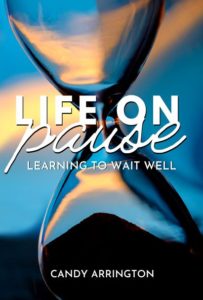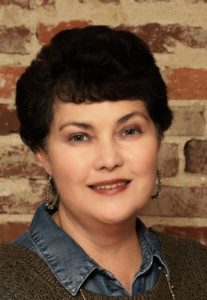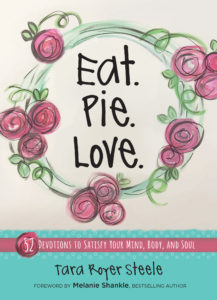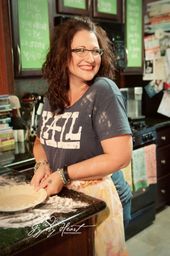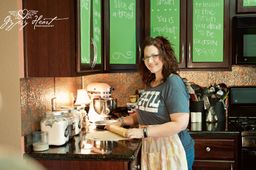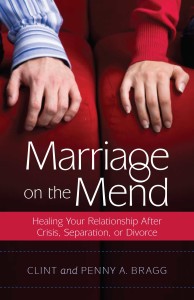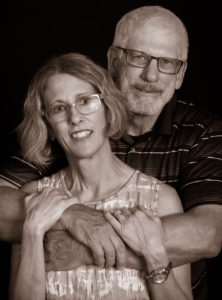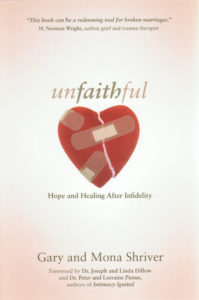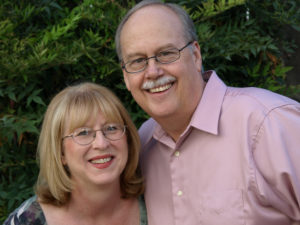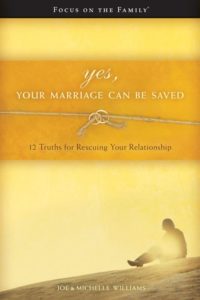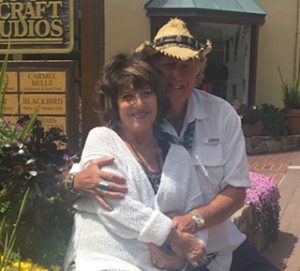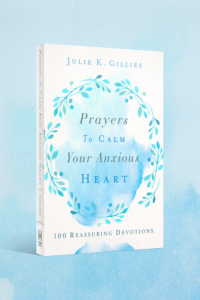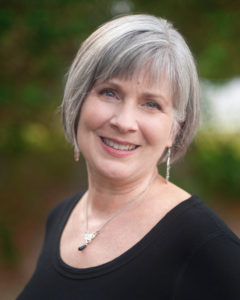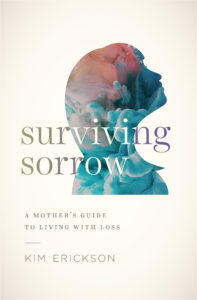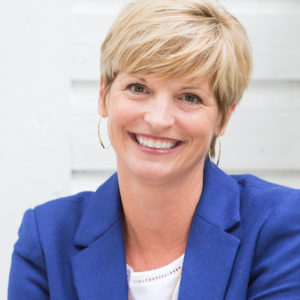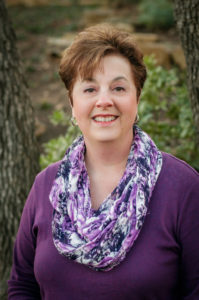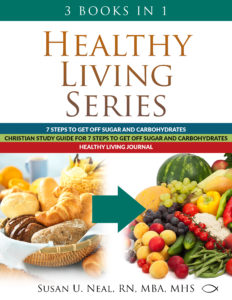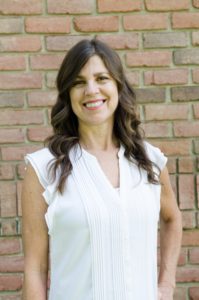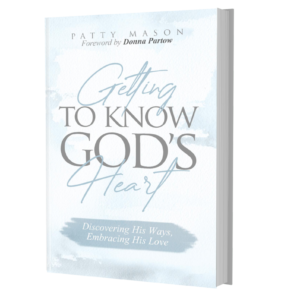 IN ANY LOVE RELATIONSHIP, getting to know the other person’s heart draws us closer to them and creates a more intimate relationship. The same is true of God. If we know His heart, we will better understand what is important to Him. But how do we get to know God’s heart? In Getting to Know God’s Heart, author Patty Mason has created a beautiful Bible study that presents a seamless picture of God’s love as she weaves her own spiritual pilgrimage into the scriptural story of our heavenly Father’s love for us. Her Bible study invites the reader to personally experience God’s love in a more intimate way. Because of Patty’s warm and transparent style, this encouraging book is a resource I will regularly recommend to those going through troubling times.
IN ANY LOVE RELATIONSHIP, getting to know the other person’s heart draws us closer to them and creates a more intimate relationship. The same is true of God. If we know His heart, we will better understand what is important to Him. But how do we get to know God’s heart? In Getting to Know God’s Heart, author Patty Mason has created a beautiful Bible study that presents a seamless picture of God’s love as she weaves her own spiritual pilgrimage into the scriptural story of our heavenly Father’s love for us. Her Bible study invites the reader to personally experience God’s love in a more intimate way. Because of Patty’s warm and transparent style, this encouraging book is a resource I will regularly recommend to those going through troubling times.
Linda: Patty, what prompted you to begin seeking God’s heart?
Patty: While battling depression, I watched a friend, who had more problems than I could count, go through life with joy. “How did she do it?” I wondered. How could she exhibit joy when she was left to care for her sick mother while her workaholic husband left her to raise four children on her own.
In comparison, my life was grand, yet she had peace and joy. God was her Rock, the one she clung to, and she spoke of Him with passion. God was not my favorite topic of conversation.
I could think of twenty other topics I would rather discuss. So I resisted, even though her enthusiasm for God caught my attention.
Linda: If her enthusiasm caught your attention, why did you hesitate?
Patty: Many things can keep us from wanting to know God. I hesitated because I associated God with church and religion. To me church felt fickle and phony—reserved for the well-mannered, well-respected, and well-dressed. The church was not filled with people who knew how to love well, so I concluded God would treat me the way they did.
It’s sad to me now how we can embrace a false view of God based on how people treat us. God designed earthly relationships to serve as examples and reminders of His love for us, but if we’ve been harmed through human relationship, it can be difficult to receive God’s love.
When we’re going through something very hard, it’s easy to question God’s heart and begin to wonder, “Does God see? Does He even care?”
For thirty-six years, I had no idea how much God loved me and longed to have a relationship with me. I knew facts about God. I believed Jesus died on the cross, but I didn’t understand the depth of His love demonstrated upon that cross.
Linda: What led you to set aside your beliefs and seek God’s heart?
Patty: Sheer desperation. I wanted the peace and joy my friend had, but until I became desperate, I wasn’t willing to pursue it. I needed healing. All the screaming, crying, and fits of rage were destroying my family and my life. Consuming alcohol to cope numbed the pain but fixed nothing. And when no one I turned to could help me, I was out of options.
I saw that amid her problems, my friend carried a joy and peace that was foreign to me. She seemed to know something I didn’t. So, when life became more than I could handle, I finally cried out to God.
Linda: What happened? How did God respond?
Patty: The day I was planning to take my life, God intervened. After years of battling depression, Jesus saved me, and His healing touch caused my heart to swing wide open. Suddenly, I wanted to know God. And this desire to know Him took me on a life-changing journey.
Linda: How did knowing God’s heart change your life?
Patty: As a believer, I understood “how” God saved us, what I didn’t understand was “why” He saved us. In all those years of growing up in 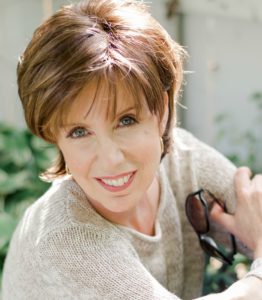 church, going through the motions of religion, I never saw the passion of God’s heart. I didn’t understand what He was after or how the healing balm of His love could set me free from deep wounds and rejection.
church, going through the motions of religion, I never saw the passion of God’s heart. I didn’t understand what He was after or how the healing balm of His love could set me free from deep wounds and rejection.
Getting to know God’s heart changed me because it changed my perspective of God, myself, and those around me. Seeing His heart for me filled me with a love for Him and others. As it says in 1 John 4:19, “We love because He first loved us.”
Jesus came to set the captives free, and when we know God’s heart for us, that understanding can set us free from sin, wounds, addictions, temptations, and past hurts.
Linda: What led you to write Getting to Know God’s Heart? And what do you hope people will gain from reading it?
Patty: The one thing I want people to know is: The greatest desire of God’s heart is you! He longs for you. What He wants most is you—all your heart, mind, soul, and strength. This is what my friend knew about God. She knew she was passionately loved by the Almighty God of the Universe and that understanding awakened her soul. She knew, no matter what she faced in life, His heart was for her, and it gave her peace.
This is what my friend wanted for me. She wanted to help me recognize the one thing that would change my life—an awareness of God’s love. This is why I wrote the book, and what I want for those who read it to receive. Above all else, no matter who they are or what they are going through, God loves them passionately and cares about them deeply.
Linda: What made you decide to use a Bible study format rather than just a regular chapter book?
Patty: It’s vital we see God’s heart through His word, not through the commentary of the author.
Much of our inner pain comes from not knowing God. And I wanted the reader to have the thrill of discovering His heart for them through the intimacy of His word.
Linda: What would you say to someone who is having trouble receiving God’s heart for them?
Patty: Perhaps, like me, you have experienced setbacks in your pursuit of God. But don’t allow those obstacles to define God’s character or your relationship with Him. Regardless of what has held you back, be encouraged. God’s unyielding love will not give up on you. He knows you. He sees you, and He will not stop in His relentless pursuit of you.
So, allow me to challenge you to let go of any pain, false beliefs, or expectations, and pursue the heart of God and allow Him to capture you with the wonders of His love.
This is a choice. You can hold onto grudges, bitterness, and hurt. You can keep your current perspective and remain stuck. You can continue to strive and struggle, convinced God is only interested in your performance. Or you can lay all that aside and discover a love so profound it will set you free, fill you with love, and give you identity and purpose.
Linda: Patty, thank you for writing this beautiful, life changing book. Where can people find out more about your book, Getting to Know God’s Heart as well as your ministry and other books?
Patty: To learn more, they can visit www.LibertyinChristMinistries.com
I would also like to invite them to join me on our FB group Quick & Easy Bible Studies for Women at www.facebook.com/groups/quickandeasybiblestudies
